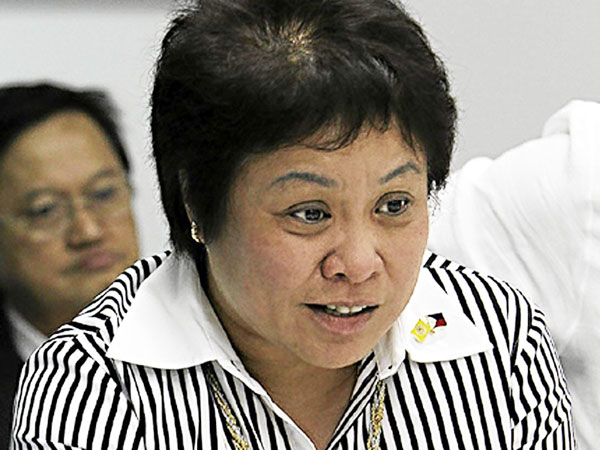Don’t blame the Aquino administration for the proliferation of fake cigarette tax stamps, former Internal Revenue Commissioner Kim S. Jacinto-Henares said on Tuesday, as the Duterte administration looked into alleged tax arrears of homegrown manufacturer Mighty Corp. since 2013.
“Everyone should not forget that it was during our time that the tax stamp system was implemented, although this has been mandated since 1998. The system’s objective is to monitor and detect and provide evidence of cigarettes introduced into the market without the proper taxes being paid,” Henares said in a statement.
She was referring to the Internal Revenue Stamps Integrated System (Irsis) on tobacco products, which has been implemented since late 2014 to ensure the collection of correct excise taxes.
BIR investigation
“And this is precisely what it (Irsis) is doing now—telling the government when taxes are not paid and who are not paying,” she said.
The BIR is investigating Mighty for millions of cigarette packs bearing counterfeit tax stamps, which deprives the government of revenue.
In a report last December, a BIR task force pointed to a number of lapses in ensuring no fraudulent activity during tax stamp production by state-run printer APO Production Unit Inc., an attached agency of the Presidential Communications Operations Office.
“Any system is always subject to attack that is why the agreement we entered into with APO requires that the design be changed every three years or sooner if there is evidence of 10 percent fraudulent stamp in the market. And it is precisely because of this that there was an agreement to implement a change of design effective July 1, 2016,” Henares said.
Security features
Finance Secretary Carlos G. Dominguez III earlier noted that eight of the 10 security features of the current tax stamps had already been copied by counterfeiters.
Dominguez said the Department of Finance (DOF) was supporting the BIR plan to roll out new tax stamps with better security features, which could be more expensive, by the second half of the year.
As to insinuations that the BIR during the Aquino administration did nothing to stop Mighty’s alleged practice of using fake tax stamps, Henares said “the complaint we received was based on an extrapolation of a market survey, which is not evidence that can be used in court.”
CCTV footage
“Despite this, we put a CCTV surveillance at the factory of Mighty, the only cigarette company we placed a CCTV system on. For a time we also had revenue officers on-premise on a 24-hour basis to closely monitor Mighty’s factory. We also audited Mighty and assessed them deficiency taxes,” she added.
During a recent meeting among cigarette industry stakeholders, Mighty representatives complained of being “singled out” as it was the lone firm being monitored through CCTVs.
“We expect nothing but fairness” moving forward, the company said.
Henares said the BIR under her leadership was cautious so that any investigation against Mighty could not be taken advantage of by its competitors.
“At that time, based on the survey by the World Bank, the weighted [weekly] presence of the stamp in cigarettes went up to as high as 99 percent, which also refuted the veracity of the complaint. We received a lot of complaints, and we had to evaluate which were valid as we did not also want to be used as a tool of taxpayers to destroy their competitors,” she said.
World Bank data on the DOF website showed that compliance with the rule requiring tax stamps to be affixed to all cigarette packs dropped to as low as 75 percent last September, down from the compliance rates of more than 90 percent between December 2015 and August 2016.
On Friday, Dominguez said the tax evasion case being readied against Mighty would push through as the government computed all of the company’s unpaid excise taxes. “We will file a case because it’s our duty,” he said. —BEN O. DE VERA
